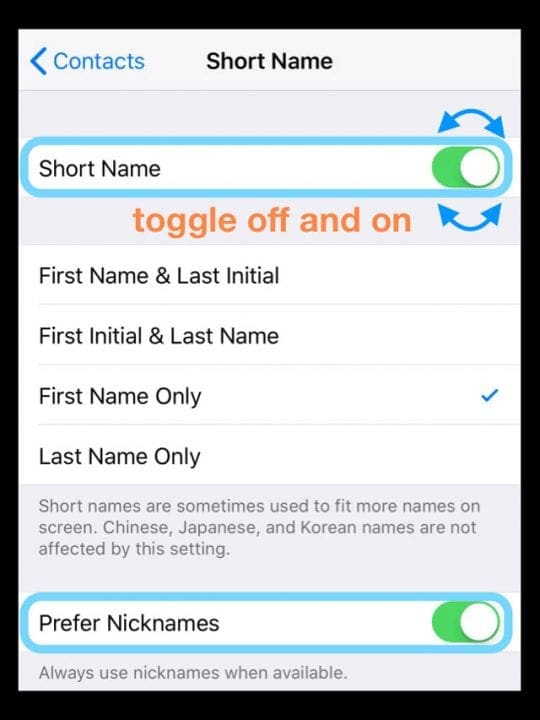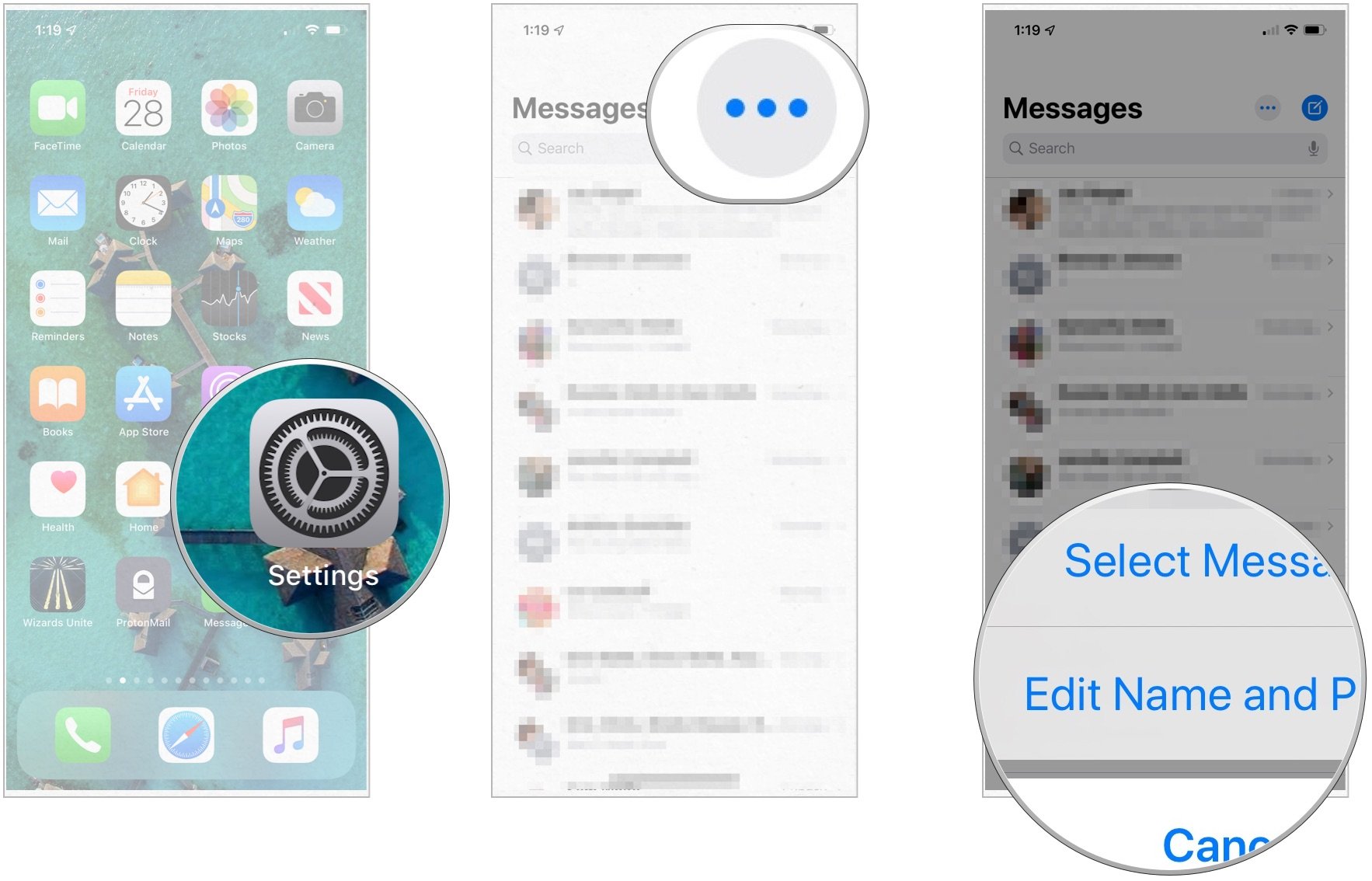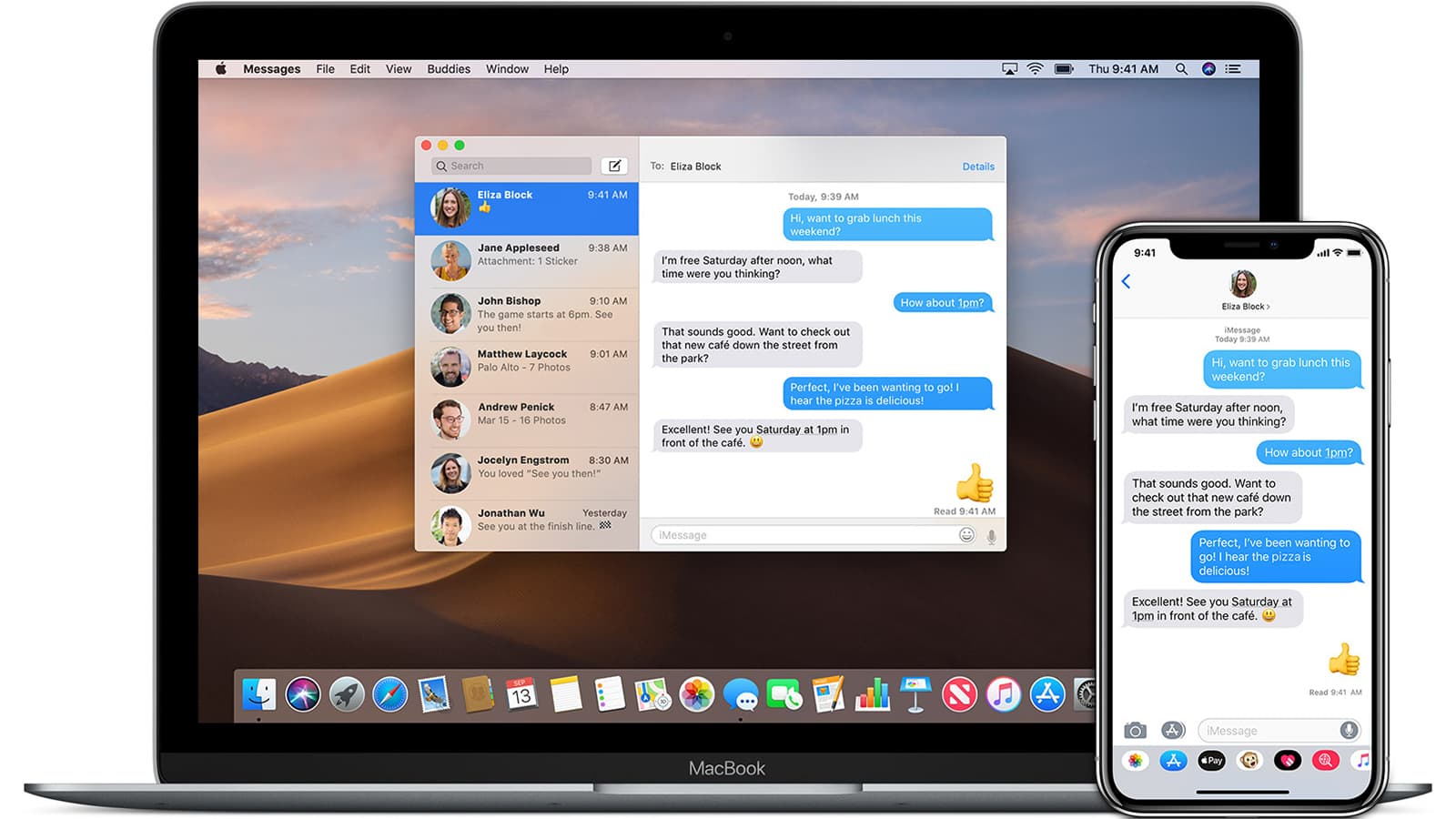
- #Apple messages for mac not displaying names how to#
- #Apple messages for mac not displaying names mac#
The rest of the settings determine things like if read receipts are for on every iMessage conversation, whether or not you want text messages (those green bubbles) forwarded to your other Apple devices or kept on your iPhone, how long you want to keep messages on your device, and so on. I have a thorough walkthrough of that process here.
#Apple messages for mac not displaying names mac#
Or if you don't have an iPhone, but use iMessage on a Mac and iPad, then make sure your Send & Receive settings look identical. Luckily, it's an easy fix: Don't use your email address(es), use only your phone number in the Send & Receive section of Message's Settings. I can't tell you how many times I've been asked why some messages are showing up on a Mac or iPad ( $226 at Amazon), but not an iPhone - or the other way around. Most importantly, double check your send and receive settings. It's a good idea to open the Messages' Settings screen and take a few minutes to go through the various options and customize how Messages will work. IMessage is a key part of the Apple experience, and rightfully so!
#Apple messages for mac not displaying names how to#
Here's a list of my favorite iMessage features and how to use them. To me, Apple's chat platform feels much more complete, and that's largely thanks to the huge range of useful features that go beyond just typing in a message and sending along a link. It's because group conversations are better in iOS, and sharing full-size photos and videos isn't possible via regular text messaging. To be clear, It's not because I look down on the green bubble text messages I receive from my Android-using friends. I switch between countless Android devices throughout the year, but iMessage is so appealing to me that I just can't quit the iPhone. It was being viewed on the right before but if I view it on the right the sent list goes back to showing my name as the sender and not the recipient name.There's just something about the addictive blue bubble of iMessage. Unfortunately I can only view it on the bottom.

I solved my problem using the other hints here, however, they were not a perfect solution for me. I could not figure out how to get the fourth to also display this way. In 3 of the four my sent email list displays who the email was sent to.

I have 4 different email accounts I am managing through Outlook 2011 for Mac. I am not a Mac power user but I did have to try and solve this same problem. Drafts saved locally are listed by recipient as expected. I don't know whether the local ("On my computer") Sent Items folder has the same problem, as it's configured so that no emails except drafts are ever stored in these local folders. The fact that Apple Mail users have encountered the same issue with no apparent fix makes me think the problem might be in the interaction with the network rather than the mail client - but that's way beyond my limited knowledge of these things.

That method doesn't work on Mac because the fields can't be selected separately. On Windows, it's easily fixed by resetting the field. This can also happen in Outlook for Windows.Things I've found while researching this: Is this normal for Office for Mac 2011? How can I fix this, so that the list shows the recipients' names instead of endlessly reminding me of my own name? I guess it's reassuring to be told that every email that I sent was sent by me and if I was ever to forget my own name while browsing my sent emails folder, it'd be super useful, but it's not very helpful for navigating sent emails. There's no clue at all as to who these emails were to, until I open each and every one.

That means every single email is headed with my own name, like this: My Name In Outlook 2011, in the network "Sent Items" folder, all emails are listed showing the sender's name (my name), not the recipients' names. Outlook 2011 on a Mac (OS X 10.7 Lion), on a (mostly PC) office network using Microsoft Exchange server.


 0 kommentar(er)
0 kommentar(er)
